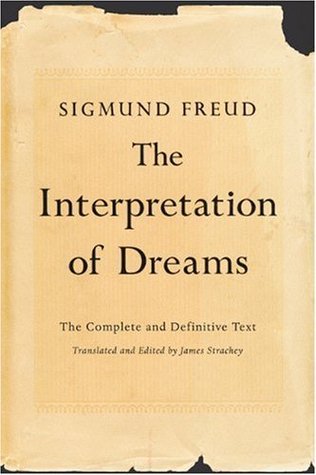More on this book
Community
Kindle Notes & Highlights
But apart from them, one comes across clear-headed men, without any extravagant ideas, who seek to support their religious faith in the existence and activity of superhuman spiritual forces precisely by the inexplicable nature of the phenomena of dreaming. (Cf. Haffner, 1887.)
Radestock (1879, 134) tells us how before Xerxes started on his expedition against Greece, he was given sound advice of a discouraging kind but was always urged on again by his dreams; whereupon Artabanus, the sensible old Persian interpreter of dreams, observed to him pertinently that as a rule dream-pictures contain what the waking man already thinks.
We may even go so far as to say that whatever dreams may offer, they derive their material from reality and from the intellectual life that revolves around that reality. . . . Whatever strange results they may achieve, they can never in fact get free from the real world; and their most sublime as well as their most ridiculous structures must always borrow their basic material either from what has passed before our eyes in the world of the senses or from what has already found a place somewhere in the course of our waking thoughts—in other words from what we have already experienced either
...more
theory according to which dreams are a result of a disturbance of sleep: we should not have had a dream unless something disturbing had happened during our sleep, and the dream was a reaction to that disturbance.
Krauss [1859, 255], the psychiatrist, in an investigation carried through with remarkable consistency, traces the origin alike of dreams and of deliria38 and delusions to the same factor, namely to organically determined sensations.
Krauss supposes that the process by which dream-images arise on the basis of somatic stimuli is as follows. The sensation that has been aroused evokes a cognate image, in accordance with some law of association. It combines with the image into an organic structure, to which, however, consciousness reacts abnormally.
Krauss has a special term for describing this process: the ‘trans-substantiation’ of sensations into dream-images.
Weygandt (1893, 17) has adopted this same view and made its application general. He asserts of all dream-images ‘that their primary causes are sensory stimuli and that only later do reproductive associations become attached to them.’
It is true that the dominance of the brain over the organism is asserted with apparent confidence. Nevertheless, anything that might indicate that mental life is in any way independent of demonstrable organic changes or that its manifestations are in any way spontaneous alarms the modern psychiatrist, as though a recognition of such things would inevitably bring back the days of the Philosophy of Nature [see p. 39 n.], and of the metaphysical view of the nature of mind. The suspicions of the psychiatrists have put the mind, as it were, under tutelage, and they now insist that none of its
...more
They are (1) that the alteration in coenaesthesia between the sleeping and waking states is unfavourable to reciprocal reproduction between them; and (2) that the different arrangement of the ideational material in dreams makes them untranslatable, as it were, for waking consciousness.
These doubts as to the accuracy of the reproduction of dreams are also expressed by Strümpell (1877, [119]): ‘Thus it may easily happen that waking consciousness unwittingly makes interpolations in the memory of a dream: we persuade ourselves that we have dreamt all kinds of things that were not contained in the actual dreams.’
Very similar ideas are expressed by Spitta (1882, 338), who seems to believe that it is not until we try to reproduce a dream that we introduce order of any kind into its loosely associated elements: we ‘change things that are merely juxtaposed into sequences or causal chains, that is to say, we introduce a process of logical connection which is lacking in the dream.’
And whatever be the pursuit to which one clings with devotion, whatever the things on which we have been occupied much in the past, the mind being thus more intent upon that pursuit, it is generally the same things that we seem to encounter in dreams: pleaders to plead their cause and collate laws, generals to contend and engage battle . . . ’ (Rouse’s translation in the Loeb Classical Library, 1924, 317.)]
The interpreter of a dream should not give free play to his own ingenuity and neglect the dreamer’s associations.


